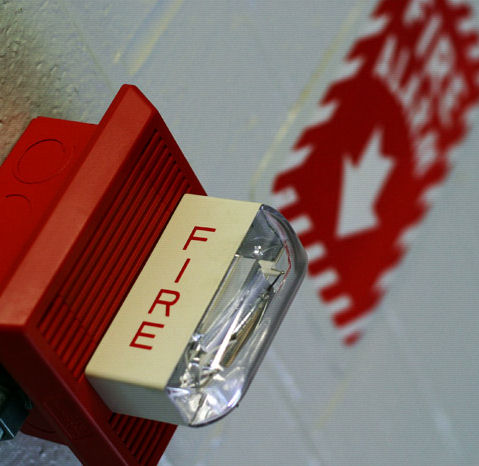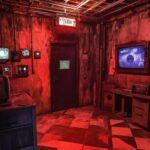 One state at a time, I’m building my list of references to state-specific information about school security on the school security page of iDigHardware. Lately, there have been a lot of questions about Indiana, where a new law mentions barricading of classroom doors.
One state at a time, I’m building my list of references to state-specific information about school security on the school security page of iDigHardware. Lately, there have been a lot of questions about Indiana, where a new law mentions barricading of classroom doors.
While some have interpreted the change to mean that Indiana schools are now allowed to use barricade devices on classroom doors, here’s what the Senate bill actually says (in part):
Provides that a school that has one or more employees may barricade or block a door for a period not to exceed three minutes in the event of an unplanned fire alarm activation in order for a designated school official to investigate the alarm. Provides that the period may be extended in the event that an active shooter has been verified to be on the school’s property. Provides that, on or before August 1, 2018, the state fire marshal, in consultation with the department, shall send written guidance to each school that has one or more employees that describes how a school may apply current fire safety requirements for an unplanned fire alarm activation in order to provide security to students and school staff in the event of a potential active shooter situation.
While this text does include the word “barricade,” the intent of this law is to allow schools to delay evacuation for up to 3 minutes when a fire alarm sounds, or longer if it is determined that an active shooter is on the property. The reason for this delay is to address concerns that an active shooter may use the fire alarm to lure students and teachers out of the classrooms.
The Indiana codes are clear regarding egress requirements – classroom doors must unlatch with one operation, with no key, tool, special knowledge, or effort, and no tight grasping, pinching, or twisting of the wrist. In addition, the ADA Standards for Accessible Design require operable hardware to be mounted between 34 inches and 48 inches above the floor. Adding most types of retrofit locking devices to a door that has existing latching hardware will mean that the door will not unlatch with one operation; this is not compliant with the model codes or the Indiana code amendments.
As required by law, the Indiana State Fire Marshal sent written guidance about delayed evacuation to all Indiana schools. The document can be found here, and includes a link to more information from the Indiana Department of Homeland Security. This page reiterates the following with regard to egress:
Freedom to Exit
- In general, exits and means of egress may not be locked or obstructed in any manner that would deny the public a continuous and unobstructed means of egress.
- This is to ensure occupants of a structure are provided with a safe and quick means of escape from dangers that may be present in a building.
What is Not Allowed
- Anything that restricts exiting or egress from the building.
- Magnetic strips or hold open devices, if used on a fire rated door.
The State of Indiana has also published the 2018 Indiana School Safety Recommendations, including the recommendation for classroom door hardware to be replaced, if necessary, with code-compliant hardware that offers the needed level of security without restricting egress:
You need to login or register to bookmark/favorite this content.






I think the three-minute delay is a good idea, but I think using only one signal type can be confusing and detrimental. Modern annunciating horn/strobe devices can give us differing signal types, e.g. an “alert” or “Condition Orange” signal, and then an “evacuate” or “Condition Red” signal. The system can then automatically switch from “alert/Condition Orange” to an “evacuate/Condition Red” signal unless cancelled and some sort of “all-clear” communication is given (a third signal type, or a verbal via the P.A. system). We need to replace the bells.
As always, a barricade is a bad idea, and the word does not belong in the code; we have to have single-motion egress available at all times without special knowledge or effort. Thanks for being a great champion for this issue(!) — hopefully we never have a situation occur that proves you were correct…